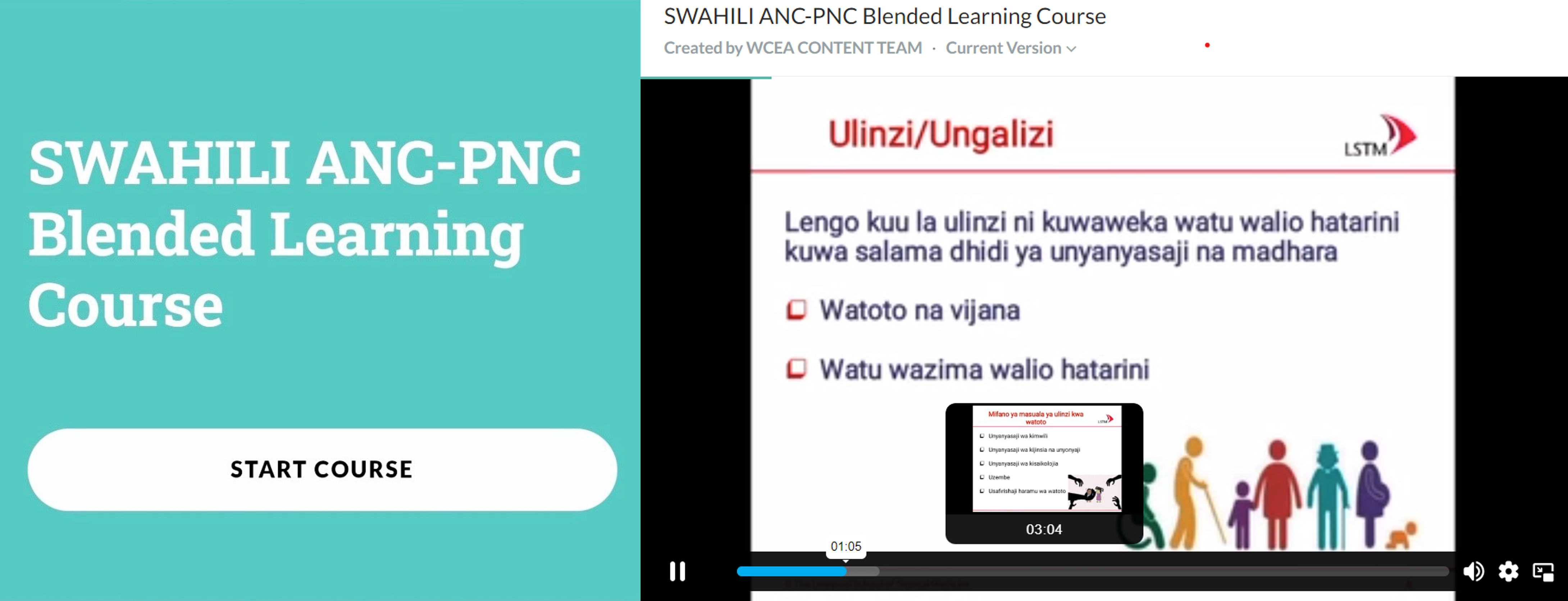
Authors
Lalashe M Kiretun1, Leonard Katalambula1, Rael Mutai2
1University of Dodoma (Tanzania), 2Liverpool School of Tropical Medicine (Kenya)
Country-based users of internationally produced health training resources need to be able to read, understand and apply the translated materials within their own contexts. Too often however, little or no attention is given to end-user comprehensibility and the cultural appropriateness of even well translated materials. The methodology for translation calls for the active engagement of potential end-users and other stakeholders throughout the process to ensure quality, comprehension, contextual and cultural appropriateness and applicability of any adapted health training materials or guidelines.
The Quality Improvement of Integrated HIV, TB and Malaria Services in Antenatal (ANC) and Postnatal Care (PNC) programme is a two-year project implemented in Tanzania (both Mainland and Zanzibar) in partnership with the Ministry of Health and the Liverpool School of Tropical Medicine (LSTM) with funding from Takeda Pharmaceuticals through The Global Fund. The University of Dodoma (UDOM) is the local implementer in Tanzania mainland. Other key stakeholders include the President’s Office, Regional Administration and Local Government Authority, which provides overall guidance on health matters locally.
The project aims to improve the availability and quality of integrated HIV, TB and Malaria services provided at healthcare facilities as part of ANC and PNC in Tanzania. In-service capacity strengthening on ANC-PNC and Quality Improvement (QI) methodologies is a key project intervention. The blended learning (BL) approach to training health care professionals is increasingly adopted in many countries because of high costs and disruption to service delivery in the light of severe human resource shortage in lowresource settings. The project has repackaged the four-day face to face ANC and PNC continuous professional development course into a three-part BL course: (1) self-directed learning (16 hours); (2) facilitated virtual sessions (2.5 hours over three days); and (3) two-day face to face sessions. However, training guidelines used in this approach were in English, which is a second language and not commonly used as the means of communication in Tanzania. Any language barrier has the potential of lowering effectiveness of any intervention. The project team, therefore, translated these training materials into Swahili, which is the national language used as the major means of communication in all public health facilities in Tanzania.
The translation process for the ANC-PNC blended learning course materials was preceded by the adaptation of both participants’ and facilitators’ guidelines to fit Tanzanian context. The actual translation was performed by two teams of expert translators, with a total of four members each. Initially, three members from the first team were given the guidelines to translate from original language (English) to Swahili. Thereafter, the fourth member read the translated materials and merged them to come up with the final translated version. These translated versions of the guidelines were sent to the second team of translators for backward translation. A similar approach as from English to Swahili was employed during translation from Swahili back to English version. Finally, one professional translator assessed the consistency and correctness of the translated guidelines and provided comments where needed. The comments were sent back to the first team and amendments were made as suggested.
The translated ANC-PNC Blended learning course participants’ and facilitators’ guidelines are now available on the World Continuing Education Alliance (WCEA) platform for use by Swahili speakers. Properly localizing of the ANC-PNC e-learning materials ensure healthcare worker/trainee engagement in order to motivate them to learn and comply. The use of these translated guidelines will improve the level of understanding among frontline healthcare providers. This will have a positive impact for the improvement of quality of care provided during ANC and PNC, as the healthcare providers are likely to retain more information from the translated guidelines.
This intervention complements other programmatic interventions and contributes to both sustainability of the programme and its integration into the Tanzania national health programmes.